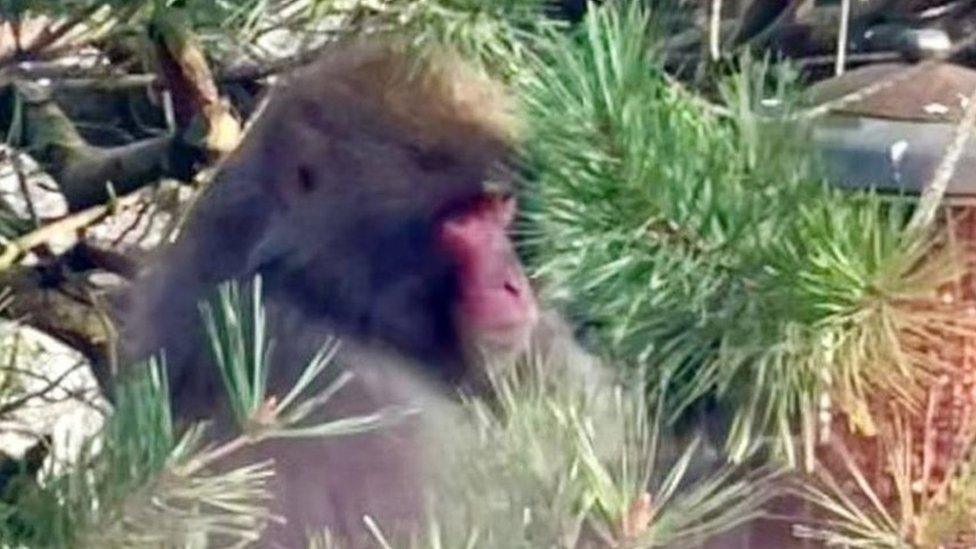What should you do if you encounter an escaped monkey?
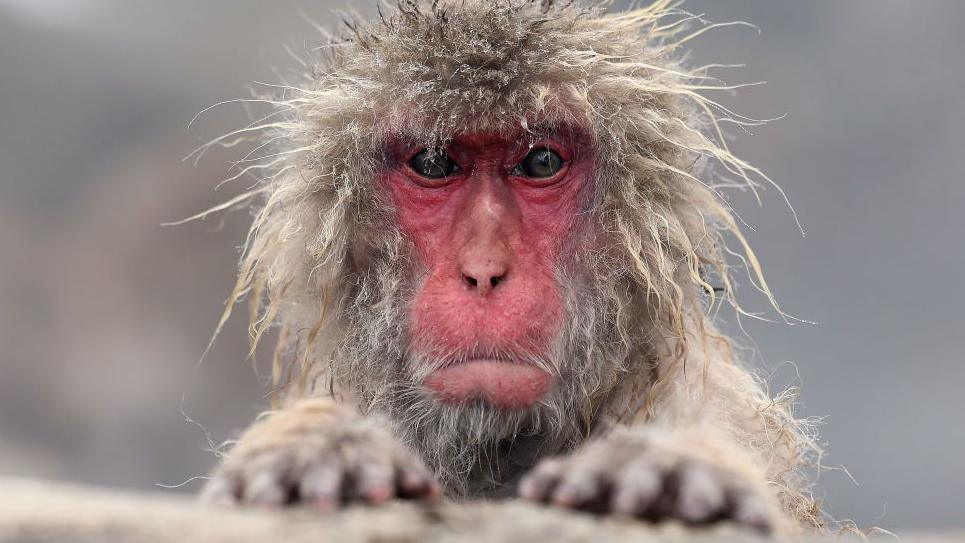
- Published
A Japanese macaque has escaped from a wildlife park and is on the loose in the Cairngorms.
Attempts are being made to recapture it, but what advice have people living near the zoo been given?
How did the monkey get out?
The Japanese macaque - also known as a snow monkey - managed to break out from an enclosure at the Highland Wildlife Park near Kincraig, south of Aviemore, on Sunday.
The seven-year-old male, which is about the size of a medium-sized dog, was part of a troop of 37 animals.
The Royal Zoological Society of Scotland (RZSS), which runs the park, said the escapee may have been trying to avoid a bust-up with others in its group.
Escaped monkey on the loose in Highland village
- Published28 January 2024
Escaped monkey was running from fight, says keeper
- Published29 January 2024
RZSS's Keith Gilchrist said: "It's a very dynamic group of animals with quite a strong hierarchy.
"This time of year is breeding season, so tensions run a little bit high, and sometimes fights break out over breeding rights.
"When that happens the animals' adrenaline can sometimes override everything and rather than get into a fight, it seems this one has just gone for it and got past the enclosure perimeter fence."
Is the monkey dangerous?
RZSS said it did not think the monkey posed a threat to the public or pets but has asked that people do not approach it and to get in touch with sightings, external.
Dr Kirsty Graham, a research fellow at the University of St Andrews, said people should keep their distance and treat the monkey as they would any other wild or large animal.
She told BBC radio's Good Morning Scotland programme: "You wouldn't approach a deer too close - or even a cow in a field.
"It's not going to be coming deliberately to chase you or attack you, but if you get too close it might feel uncomfortable and attack out of defence."
Highland Council said that as a precaution, children at Alvie Primary School in Kincraig stayed inside during Monday's morning break.
But the pupils were later able to play outside following an update from the Highland Wildlife Park team.
A council spokeswoman said: "There was no immediate concern for the children’s safety.”
Where has the monkey been spotted?
Watch: Escaped monkey spotted in Highland village
On Sunday, the escapee was spotted in gardens in the small village of Kincraig.
RZSS said on Tuesday it had received a report of a further sighting, and was following this up.
Carl Nagle, 49, and his partner Tiina Salzberg, 50, saw the monkey from their patio doors in Kincraig on Sunday morning.
Mr Nagle said: "I looked out the window and there he was, proud as punch, standing against the fence eating nuts that had fallen down from one of the bird feeders."
Can it survive in the Highlands?
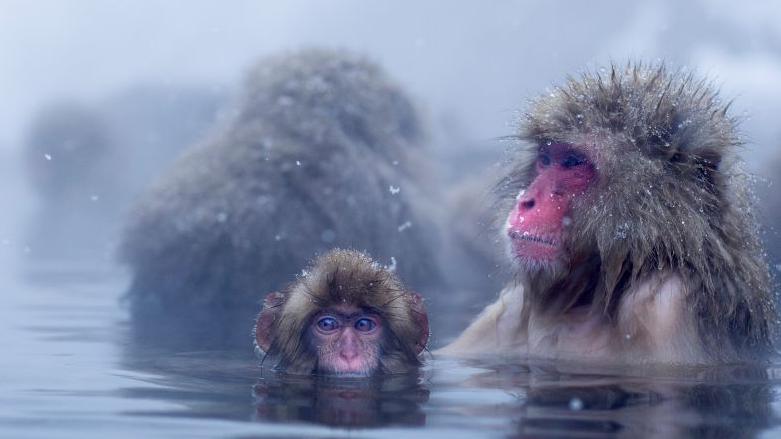
In a part of Japan, troops of snow monkeys seek relief from cold temperatures in natural geothermal pools
In the wild in Japan, snow monkey live in a range of habitats including cold mountain ranges.
Troops in some parts of Japan bathe in natural hot springs to escape the worst of the winter cold.
The species are opportunistic omnivores and feed on fruit, bird eggs, leaves, tree bark, snails and crabs.
Dr Graham said the monkeys can survive temperatures of -40C.
She said: "Temperature-wise it should hopefully be fine in the Highlands."
Dr Graham said finding enough food was likely to be the monkey's biggest challenge, but added that this could lead it to seeking out its troop back at the wildlife park.
What is being done to catch it?
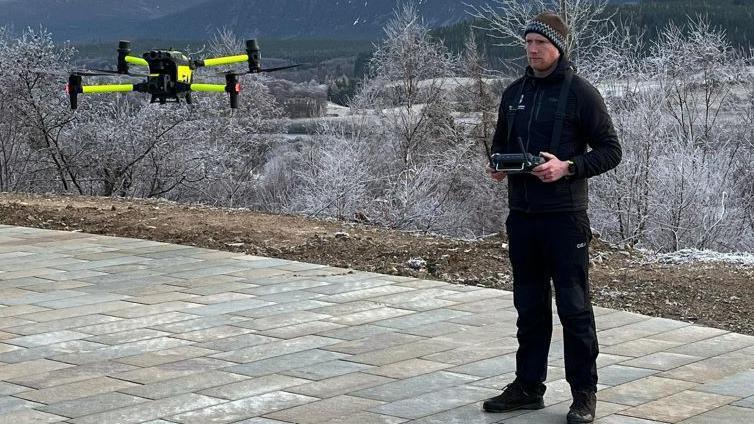
Cairngorm Mountain Rescue Team is using its drone to assist in the search
A team from RZSS has been patrolling the area around the wildlife park since the alarm was first raised in the hope of recapturing the monkey.
Cairngorm Mountain Rescue Team has been helping in the search using its drone, which has thermal imaging technology.
Drone pilot Jonny Porteous said it was an interesting challenge.
"I guess the monkey is not going to wave at you when it sees the drone and give you an indication that they've been found," he said.
The area around the park includes forestry, moorland and small communities.
RZSS has asked people not to leave out food bins, bird feed or any food for the monkey.
Reasons for this include that the animal could become unwell by eating something it should not.
New footage emerged late on Tuesday of the macaque.
The video was taken late in the afternoon.
The search team were able to view the animal on a thermal imaging drone for around forty-five minutes, but were not able to capture him.
He was spotted about 300 metres from the park entrance and the hope is he is making his way back to his home.
- Published29 January 2024
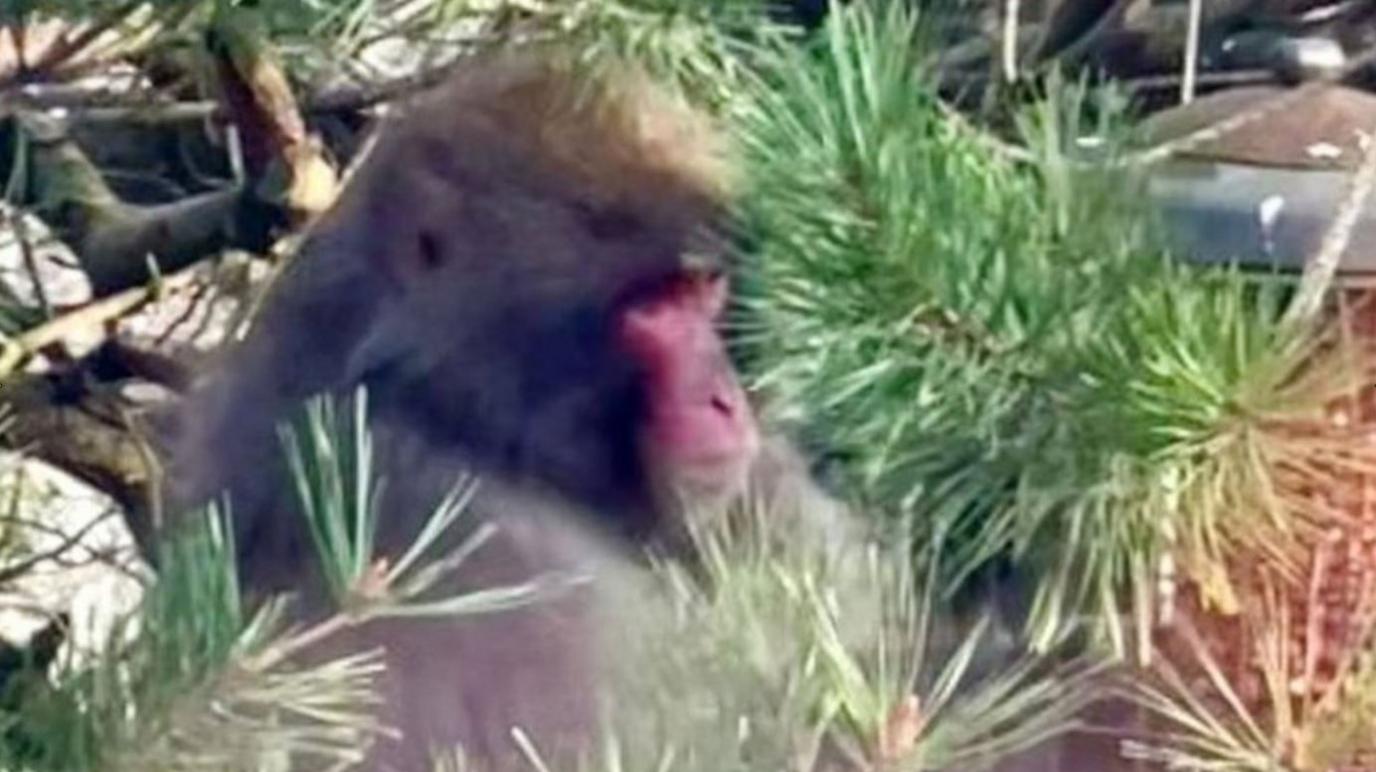
- Published28 January 2024
